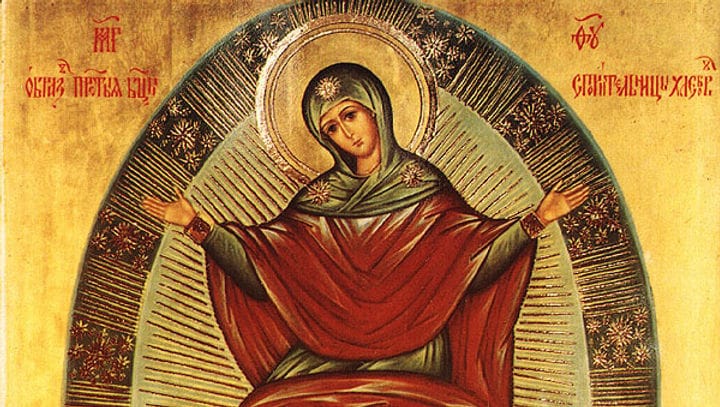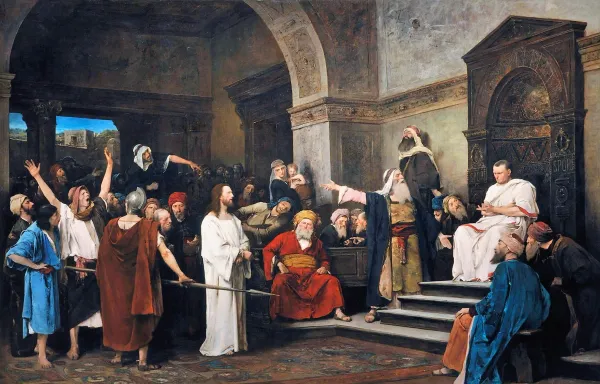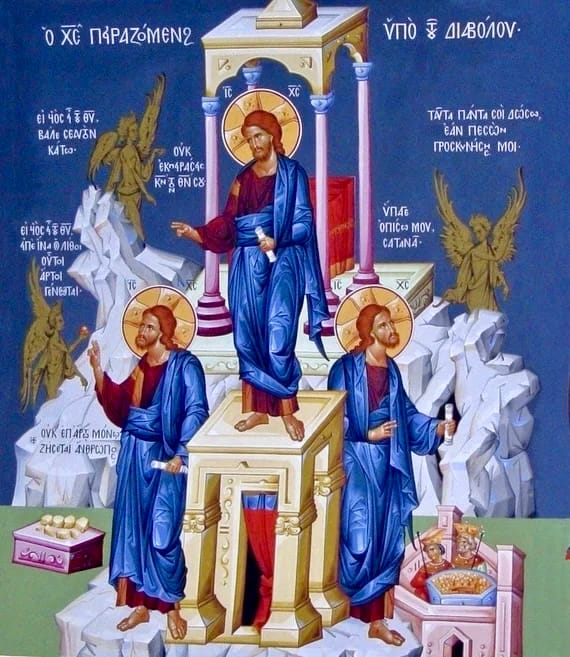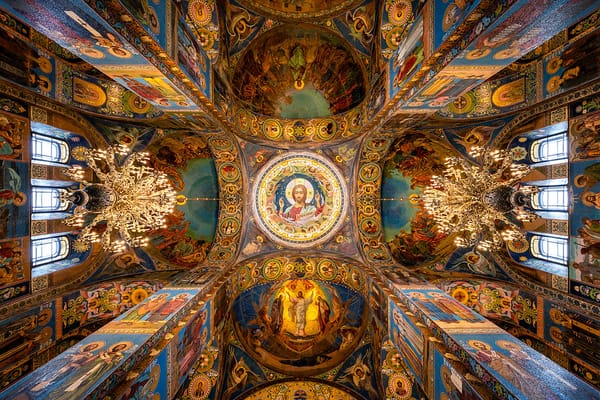John Betz on Eternity's Marian Bearer
In a Christian theology of time, according to John Betz, time has more than just analogical value vis-à-vis eternity. It is, rather, eternity's "Marian bearer."

A few months ago, I shared a selection from Mircea Eliade's The Sacred and the Profane (1968). In it, he distinguishes sacred time from profane time – that is, the time of festivals from the time of "ordinary temporal duration."
In the passage below, theologian John Betz (writing in The New Ressourcement journal) elaborates on a similar subject. In relation to eternity, he says, time has more than just some analogical value – it is, rather, eternity's "Marian bearer." Insofar as eternity cannot be, as Betz says, "the hypostaticization and absolutization of the present moment, as if we could determine eternity analogically from only one aspect of time – namely, the present," eternity must be something more than anything immobile. And if eternity is not immobile, it is dynamic and contains archetypically the fullness of time: past, present, and future.
The moment we see time in relation to eternity, however, and as made for union with it, everything changes. For it then becomes possible to see time not only as having some remote analogical relation to eternity (and therewith a minimal basis of meaning) but as pregnant with new (divine) possibilities. For time, we can see then, is not just a Platonic image of eternity, but essentially its Marian bearer. In the words of Edward Young, "Time is eternity; Pregnant with all eternity can give." That is to say, time is meant to be divinely fruitful, bearing forth new and indeed unheard-of possibilities, as Christ reported to the Baptist: "The blind receive their sight, the lame walk, the lepers are cleansed, the deaf hear, the dead are raised, and the poor have good news brought to them" (Matt 11:5). Of course, with Mary we may ask how this could be (Luke 1:34), not to mention how Christ's disciples could possibly do even greater things (John 14:12). But when God is received in time by a similar fiat of faith, no matter how determined and enchained by fate things may seem, all things are possible (Matt 19:26). For by faith the eternal Logos once again enters time and time receives her king. Then, time and reality (as we know it) flow differently, carrying a sovereign power of possibility that transcends the determinations of fallen, chronological time. For whereas chronological time is forever running out, eternal time, which is the union of the two, is always flowing over with provision (Luke 6:38). Indeed, not only does it bring dead things to life; it causes time itself to flow in altogether new and surprising ways, which the saints perceive as providence.
But this more-or-less Neoplatonic conception of time alone, Betz says, is not enough. In order to leave no room for Gnostic spiritualities that, he says "have no patience for the world," Betz delineates between a "Christian theology of time" from a purely Neoplatonic one.
Admittedly, this is a very brief sketch of a theology of time. Our point, however, has been to show that novelty is not a function of time and never has been; if it were, novelty would mean nothing more than what comes next in a temporal series. Rather, novelty is a function of time's participation even now in eternity, in the life of the God who, as Augustine famously said, is so ancient and so new (tam antiqua et tam nova) – not because God is the first in a temporal series and the last thing to happen within it but because God's eternal life completely transcends the divisions of time, being at once and quite simply, however paradoxical it may seem, older than all things and newer than all things. But, given our proximity here to Neoplatonism and in order clearly to distinguish a Christian theology of time from a Neoplatonic one, it should be emphasized that those in time are called not merely to participate through faith in eternity, since this could still leave room for Gnostic spiritualities that have no patience for the world. Rather, more profoundly, the Christian is to participate with Christ in time's redemption and, like the Mother of God, to bring forth (and help others to see) that everlasting newness, "that dearest freshness deep down things," which Hopkins so wonderfully saw.
All of this brings Meister Eckhart to mind, who I've erroneously quoted before (in the context of Advent) on the subject of time and eternity. Allow me to correct that error with a new quote sourced from a translation of one of his sermons. Though of a more devotional nature, Eckhart's brief meditation here is particularly relevant, right down to the how the Christian ought to participate in time's redemption and to the notion of time as eternity's Marian bearer.
Here, in time, we are celebrating the eternal birth which God the Father bore and bears unceasingly in eternity, because this same birth is now born in time, in human nature. St. Augustine says, "What does it avail me that this birth is always happening, if it does not happen in me? That it should happen in me is what matters." We shall therefore speak of this birth, of how it may take place in us.





